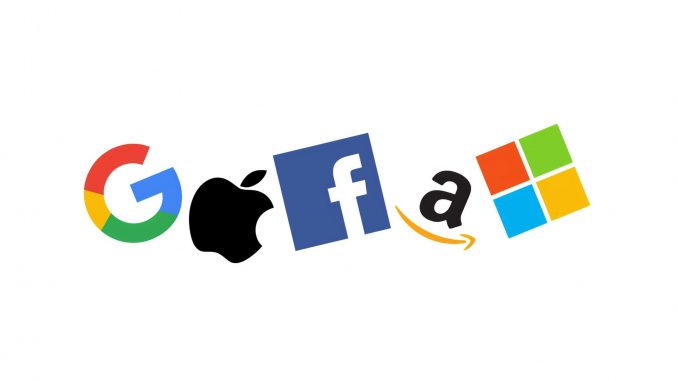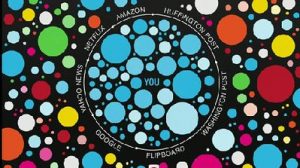
What is Techlash?
Techlash is a term first coined in early 2018 by the British weekly newspaper The Economist to describe the phenomenon of public and government dissatisfaction with the growing power and influence of ‘Big Tech Companies’, such as Alphabet (Google), Apple, Facebook, Amazon and Microsoft (King, 2019).
The Public concerns behind the Techlash
1. Monopoly and Unfair competition
In the digital age, many big technology companies use their strong market position to monopolize the market. Apple’s monopoly is a form of unfair competition, as it uses its strong market power to suppress its competitors by only allowing users to install the applications that come with the Apple App Store. Apple also has a monopoly on iOS transactions, it charges a 30% commission on all app purchases. Large companies like Netflix stopped paying 3o% commission because the company lost up to $700,000 per day in iOS revenue (Humphries, 2019). However, many small companies need to rely on the App store to survive, so they can only follow Apple’s rules. It reflects the market’s lack of fairness that the smaller companies and competitors excluded from the market.
In addition, Facebook and other large social technology companies have a monopoly on users. This month, the social media outlets Facebook, Instagram and WhatsApp were outage for almost 6 hours due to a server failure (Facebook down, 2021). This has resulted in billions of users worldwide being unable to communicate with the outside world while causing severe economic losing to some businesses that rely on the social platform app for promotion. This global outage shows the extreme dependence of users on big technology companies, who can only communicate with the outside world through this software, which reflects the monopoly of large technology companies over users and also reflects the inhibition of innovation.
2. Filter bubble

The term filter bubbles refers to algorithms developed by internet companies that personalize a user’s world of information based on their personal information on the web, the results of their searches, and the websites they have visited (Pariser, 2011).
“Filter bubbles are algorithms that create a unique universe of information for each of us ,which fundamentally alters the way we encounter ideas and information.” (Pariser, 2011)
This means that the web shows the information they think users want to see, but it may not be the information users need. Different users searching for the same information can come up with very different results, which leads to an imbalance of information and also deprives users of the right to filter and access information.
Figure 1.2: Beware online “filter bubbles” via YouTube
3. Invasion of individual privacy

The rapid growth of the internet has greatly facilitated people’s lives, but with it has come to an increasing amount of personal information being leaked. Two leading technology companies, Google and Facebook, use users’ attention and data as a commodity to sell to advertisers (ACCC, 2019). These two big technology companies make most of their profits from advertisers, so they collect information about their users through databases and select ads based on their search engines.
“The data collected often extends far beyond the data users actively provide when using the digital platform’s services.” (ACCC, 2019, pg. 23)
Both information provided by the user and information not actively provided by the user is utilized by the digital platform. For example, even if the user logs out of the digital platform account, the platform can still get information about the computer’s signal, which browser the user searched for, and the location. The ACCC has found that users are often unaware of the collection and use of shared data by digital platforms (ACCC, 2019). This is a significant violation of the user’s privacy.
4. Disrupt traditional media business models

Figure 1.4: “Newspapers” by CogSciLibrarian is licensed under CC BY-SA 4.0
The growth of digital culture has had an impact on the traditional media market in Australia, particularly notable are two big technology companies, Google and Facebook (ACCC, 2019).
“Advertising in traditional media, particularly traditional print media, has fallen over the past decade. Digital platforms have captured a significant share of the advertising revenue that has moved online.” (ACCC,2019, pg. 55)
A large part of Australia’s advertising revenue is monopolized by the tech giants and the impact on news publishers has been almost catastrophic. For platforms like Google and Facebook, it has helped the news media to be able to publish news promptly for the public to read. One survey shows that 40% of popular queries on Google are related to the news. Meanwhile (Kumar, 2021), according to the ACCC report, we can see between 2012-2018, online advertising spending has increased from 25% to 53% (ACCC, 2019). This reflects the influence of large technology companies on the population and their monopoly on traditional media in Australia. Since 2008, many regional newspapers in Australia have closed and the size of the print industry market has declined significantly (Kumar, 2021). This reflects the disruption of Australia’s traditional news media by large technology companies.
How concerns be addressed by Government, Public and the Technology compaines?

Figure 1.5: “Regulation” by EpicTop10.com is licensed under CC BY 2.0
Government
The Government’s General Data Protection Regulation (GDPR) is the most stringent privacy and security law in the world (What is GDPR, 2019). It has been implemented to protect both users’ privacy and rights. This law will allow users to regain control over the use of personal data and will also allow corporate bodies to do their due diligence. At the same time, it also facilitates citizens and regulators in imposing a penalty on corporate bodies that infringe on the data of individual users. This reflects the fact that government regulation is more enforceable and can be effectively regulated by law. However, government regulation not only takes a lot of time to develop rules, but it is also slow in terms of enforcement efficiency. Moreover, the scope of GDPR enforcement only applies to EU member states, and governments are not able to regulate big technology companies comprehensively (Official Legal Text, 2019).
Technology Companies
Big technology companies should consider negative outcomes when faced with techlash to be socially responsible, as this can prevent crises earlier (Mitroff & Storesund, 2020). Self-regulation is a good way for large tech companies themselves and it is more effective for big technology companies themselves. This means that self-regulation by companies can protect the rights of their users more quickly than government enforcement. However, the downside of self-regulation by large technology companies is that there is no guarantee that they will do so truthfully and fairly, as most technology companies are now driven by profit without regard to public value.
Public
For citizens to be involved in regulation raises the awareness of the population to protect their rights and interests. A large number of citizens and the wide distribution of the population make it possible to regulate widely. The forms of citizen oversight are also varied and can take the form of published articles to promote public opinion in favor of regulation and make people aware of the need for regulation. However, citizen oversight is more of a proposal and ultimately regulation needs to be achieved by both government and technology companies.
Conclusion
Whether the government, the public or the technology companies should regulate this strong negative reflection of Techlash in the areas of monopoly and unfair competition, filter bubbles, invasion of individual privacy, and disruption of traditional media business models. Although regulating requires a lot of time and effort, it still needs to implement by every company and public.
References
Australian Competition and Consumer Commission. (2019). Digital Platforms Inquiry – Final Report. Australian Competition and Consumer Commission. Retrieved October 17, 2021, from https://www.accc.gov.au/publications/digital-platforms-inquiry-final-report
BBC. (2021). Facebook down: Six Hours without whatsapp. BBC News. Retrieved October 16, 2021, from https://www.bbc.com/news/technology-58801814
Humphries, M. (2019). Netflix doesn’t pay Apple’s Ios Tax Anymore. PCMAG. Retrieved October 11, 2021, from https://www.pcmag.com/news/netflix-doesnt-pay-apples-ios-tax-anymore
Kumar, A. (2021). Australia vs Tech Giants: Saving news and democracy. Times of India Blog. Retrieved October 17, 2021, from https://timesofindia.indiatimes.com/blogs/the-argument/australia-vs-tech-giants-saving-news-and-democracy/
King, F. (2019). What is Techlash and what does it mean for the digital industry? Baltic Apprenticeships – UK Tech & Digital Apprenticeships. Retrieved October 10, 2021, from https://www.balticapprenticeships.com/blog/what-is-techlash-and-what-does-it-mean-for-the-digital-industry
Mitroff, I. I., & Storesund, R. (2020). Techlash: The future of the socially responsible tech organization. Springer
Official Legal Text. General Data Protection Regulation (GDPR). (2019). Retrieved October 16, 2021, from https://gdpr-info.eu/
Pariser, E. (2011). The filter bubble: What the internet is hiding from you. London : Viking
What is GDPR, the EU’s new Data Protection Law? GDPR.eu. (2019). Retrieved October 17, 2021, from https://gdpr.eu/what-is-gdpr/

This work is licensed under a Creative Commons Attribution 4.0 International License.

